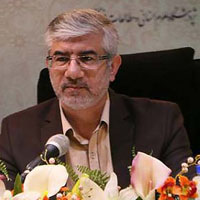The Existential Principles in Transcendental Wisdomas a Foundation for Peace Studies
The purpose of the present study is to extract the theoretical principles related to peace in the philosophy of Mullā Sadrā and to show the practical and pragmatic potentials of his philosophy in this regard. The method of study is descriptive analysis and the results showed that one of the root causes of violence and war is the differences among humans. These differences are meaningful only in plurality so Mullā Sadrā believes that essence is at the root of plurality. On the other hand, based on his important philosophical principle that is existentialism, he regards the essence credential existing only in mind while what constitutes reality in the external world is called existence and is common between all creatures. What causes disagreement and thus leads to violence and quarrel is something that has no essence and, in other words, is credential. On the other hand, the world of unity in the view of Mullā Sadrā is the world of oneness, harmony, and peace because all the things that are seemingly different and sometimes contradictory, are indeed dimensions of a single truth and thus a part from a unified whole. The focus of Mullā Sadrā’s ontological viewpoint on spiritual-substantive commonality between creatures and the current of a unified truth in them all can be considered as an important foundation to place them in a framework in which a unifying circle ensures their convergence despite their differences and distinctions. This convergence can be regarded as a theoretical tenet for deriving the concept of peace and peace studies from Mullā Sadrā’s philosophy.
-
Rereading Ibn Arabi's Answers to the Problem of Evil with an Approach to Contemporary Theology
Tahereh Baghestani, *, Naeimeh Pourmohammadi, Seyyed Hosein Seyyed Moosavi
Philosophy Of Religion Research, -
Fundamentals and methods of self-knowledge art (wisdom and art) from Ibn Arabi's point of view
Fatemeh Mahmoudi, *, Mohammadtaghi Faali
Islamic Art Studies, -
Ghazali's critique on the doctrine of teaching - the basis of Ismaili Shia religious epistemology with the narration of Nasser Khosrow
*
Journal of Philosophy of Religion, -
Environmental ethics and philosophy and its role in the present world
MohammadReza Alavi Moghaddam,
Human & Environment,



